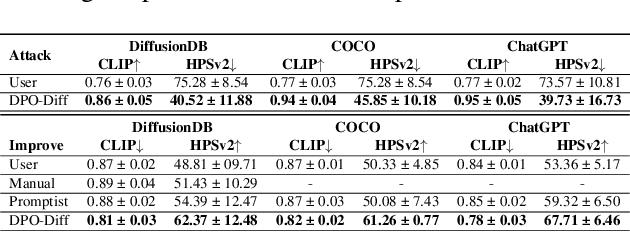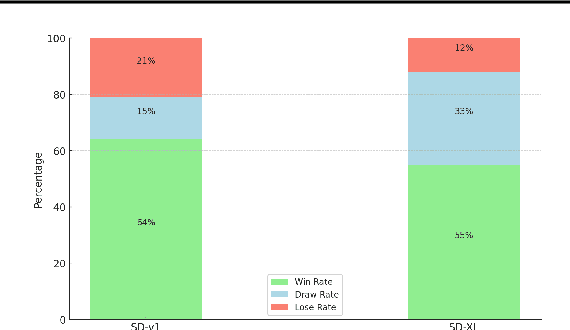On Discrete Prompt Optimization for Diffusion Models
Paper and Code
Jun 27, 2024



This paper introduces the first gradient-based framework for prompt optimization in text-to-image diffusion models. We formulate prompt engineering as a discrete optimization problem over the language space. Two major challenges arise in efficiently finding a solution to this problem: (1) Enormous Domain Space: Setting the domain to the entire language space poses significant difficulty to the optimization process. (2) Text Gradient: Efficiently computing the text gradient is challenging, as it requires backpropagating through the inference steps of the diffusion model and a non-differentiable embedding lookup table. Beyond the problem formulation, our main technical contributions lie in solving the above challenges. First, we design a family of dynamically generated compact subspaces comprised of only the most relevant words to user input, substantially restricting the domain space. Second, we introduce "Shortcut Text Gradient" -- an effective replacement for the text gradient that can be obtained with constant memory and runtime. Empirical evaluation on prompts collected from diverse sources (DiffusionDB, ChatGPT, COCO) suggests that our method can discover prompts that substantially improve (prompt enhancement) or destroy (adversarial attack) the faithfulness of images generated by the text-to-image diffusion model.
 Add to Chrome
Add to Chrome Add to Firefox
Add to Firefox Add to Edge
Add to Edge